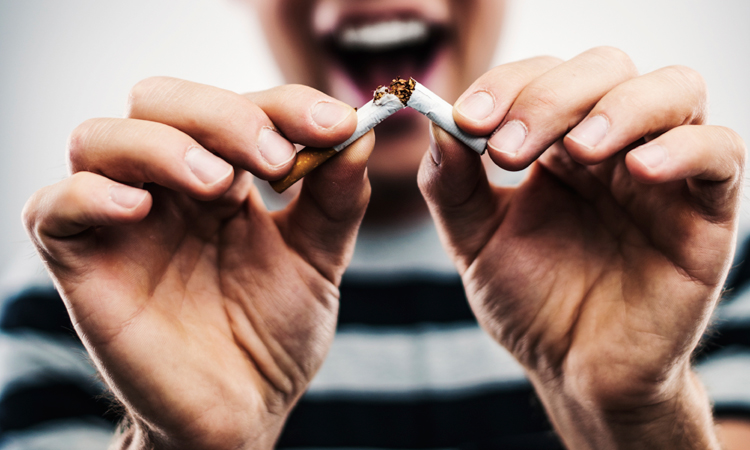
My dad was a badass in high school. A straight-A student with minimal studying he had plenty of time for drag racing, greasing his hair back into a ducktail and smoking with friends. I picture him looking a lot like John Travolta’s Danny in the movie, Grease. Like Danny, my dad fell hard for a good girl.
My parents met during their first month at the University of Georgia and have been together ever since. On the night my father proposed marriage my mother accepted, on one condition: Lose the cigarettes. Though the Surgeon General’s familiar warning was not yet on my dad’s Marlboro cartons my mother was firm: “Why would I want to have babies with a man who’s not going to live long enough to help raise them?” The wedding date was set and just afterward, through a process of reducing his cigarettes one per day, my father finally quit.
With prescient intuition my mother was right, especially considering that now studies have proven that smoking in young adulthood does particular damage to the insula (a part of the cortex valuable in decision-making and monitoring internal states), real estate in the brain that contains the highest nicotinic acetylcholine receptors.
While research has linked tobacco use to a vast array of diseases, including kidney and digestive blood flow issues the news isn’t all bad. We now know that quitting smoking brings quick health benefits. Almost immediately quitters see a reduction in stroke, heart disease and many cancers, including lung, mouth, throat, pancreas, cervix and bladder. In a TIME magazine article Norman Edelman, former chief medical officer of the American Lung Association explains, “When you quit smoking, the inflammation in the airways goes down. The little hair-like projections in the airways that we call cilia—which are paralyzed by smoke—begin to work again. So the lungs will get better in weeks to months. Breathing will get better. Exercise capacity will get better.”
If you’re sitting on the fence of quitting knowing that your body can rebound from the damage of smoking might be enough to inspire a race to the quitter finish line. If you’re just approaching the fence, however, new research about how every puff damages your brain might start you thinking about bucking the butt habit.
Accelerating and Decelerating Cognitive Decline
Composed of folded gray matter and responsible for consciousness the cortex functions as the outer layer of your brain. Associated with executive processes the cortex acts as the primary source for language, information processing, memory, attention and perceptual awareness. In short, it’s what allows you to make decisions, synthesize information and get through each day via a variety of specifically determined choices and actions. Imagine losing all of that personal power. That’s exactly what happens as the cortex thins.
Recently, scientists at the University of Oslo published in the journal Neurobiology of Aging proof that the natural process of cortex thinning begins around the age of sixty. By studying a large group of people over time and using magnetic resonance imaging (MRI), plus memory tests researchers noticed that the brain begins to significantly lose volume, especially in specific regions of the cortex, around middle age. It’s an inescapable biological fact.
Now, recent research gathered by teams at the University of Edinburgh and the Montreal Neurological Institute at McGill University adds disturbing evidence that if you are or have been a smoker every puff is actually pushing your brain further into cognitive decline. Published in the journal Molecular Biology research results verify that cigarette smoking accelerates the natural aging and cortex thinning process. In the study, researchers examined MRI and health data of 500 people: some smokers, some quitters and some who had never smoked at all. What the research showed is that smokers and quitters have significantly thinner cortices than those who never smoked at all. While the positive news is that quitters’ cortices seemed to somewhat thicken in the absence of cigarettes (that is, they rejuvenate to a certain extent) they remained thinner than non-smokers.
While some damage can be undone by eliminating toxic health habits strengthening brain health matters at every stage of life despite your lifestyle. After 60 proactively supporting cognitive function becomes even more critical, especially if you are or have been a smoker. While the Edinburgh and McGill universities’ research highlights the benefits of quitting smoking the University of Oslo data identifies additional options for maintaining cognitive health going into older age, including:
- Physical activity
- Mental exercise
- Higher vitamin D levels
- Higher levels of the marine fatty acid, DHA
The effects of smoking on the brain may seem like a smoker’s personal choice, but the truth is that smoking affects both the physical, and evenly more deeply, the emotional lives of a smoker’s relationships. A few years ago I lost a close friend to lung cancer. Despite his eleven year old daughter’s pleas he smoked right through chemo and up to his death. My partner’s dad did the same and so his world has lacked a father’s presence since the age of eighteen.
I was in a seventh grade health class when we were taught the nitty-gritty details of what smoking does to lungs. I went home in tears terrified that my father would die prematurely. He assured me he was doing everything he could to live a long healthy life. Indeed, he has: My dad was in his twenties when he quit smoking, so his heart, lungs and brain had a significant amount of time in which to regenerate substantial health. He was on the forefront of vitamin supplementation and has been taking Vitamin D and DHA for a decade. He’s in his seventies now, still super-sharp intellectually, still physically active and, most importantly, still around to father me.
Click here to get inspired by Rose’s easy steps to positively change your mind


